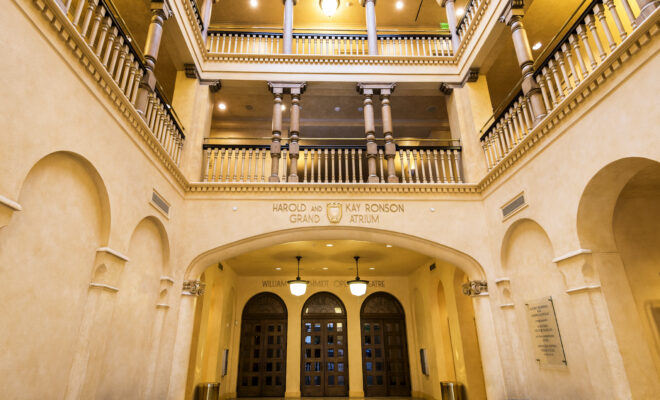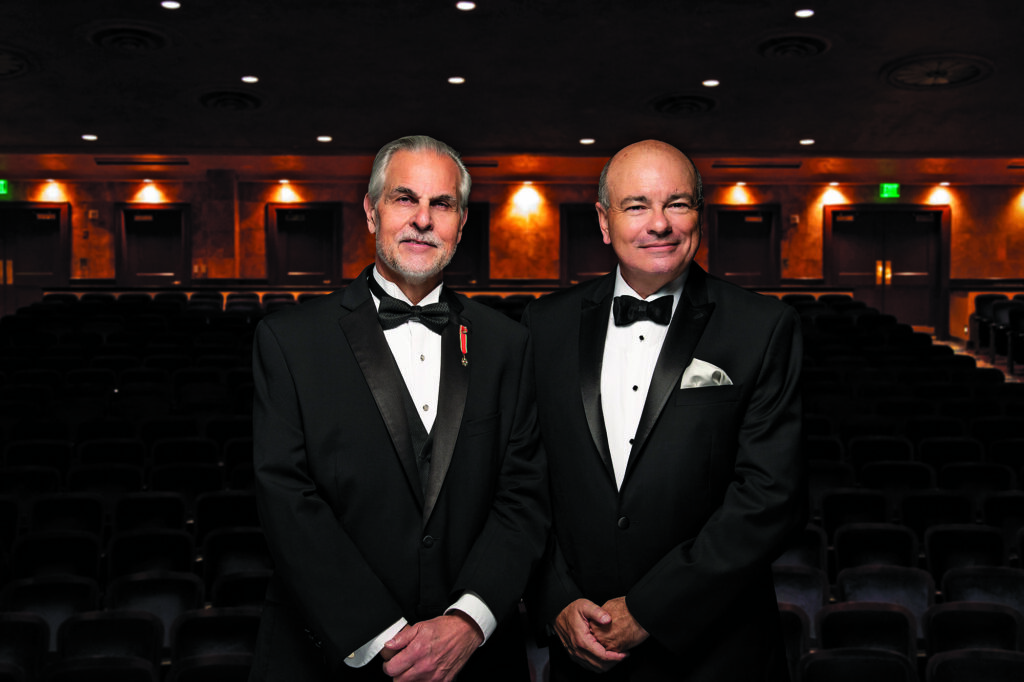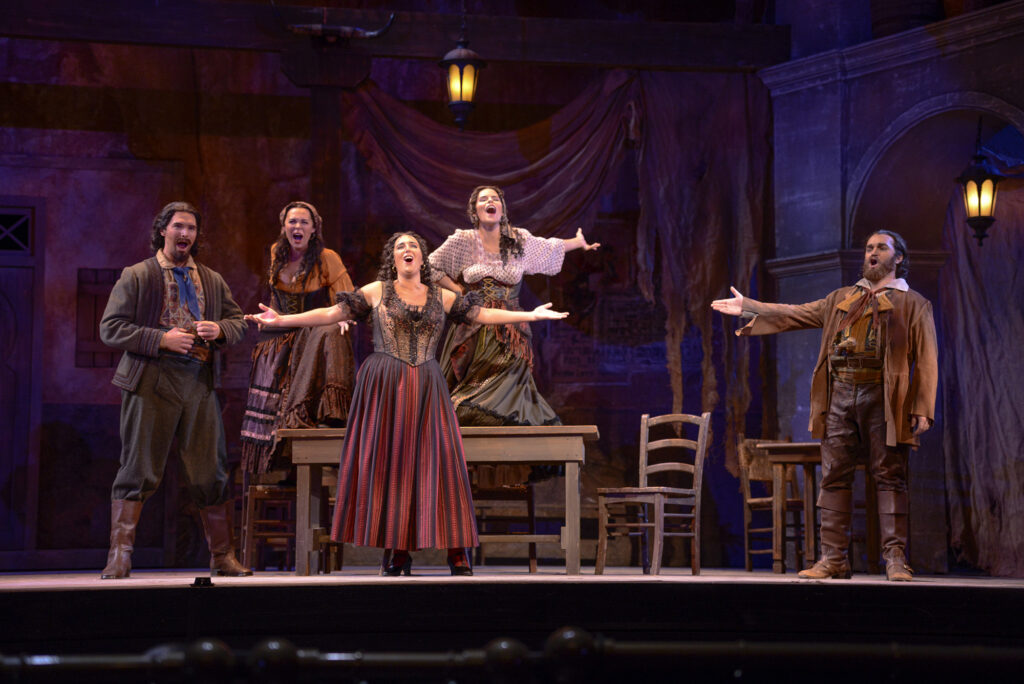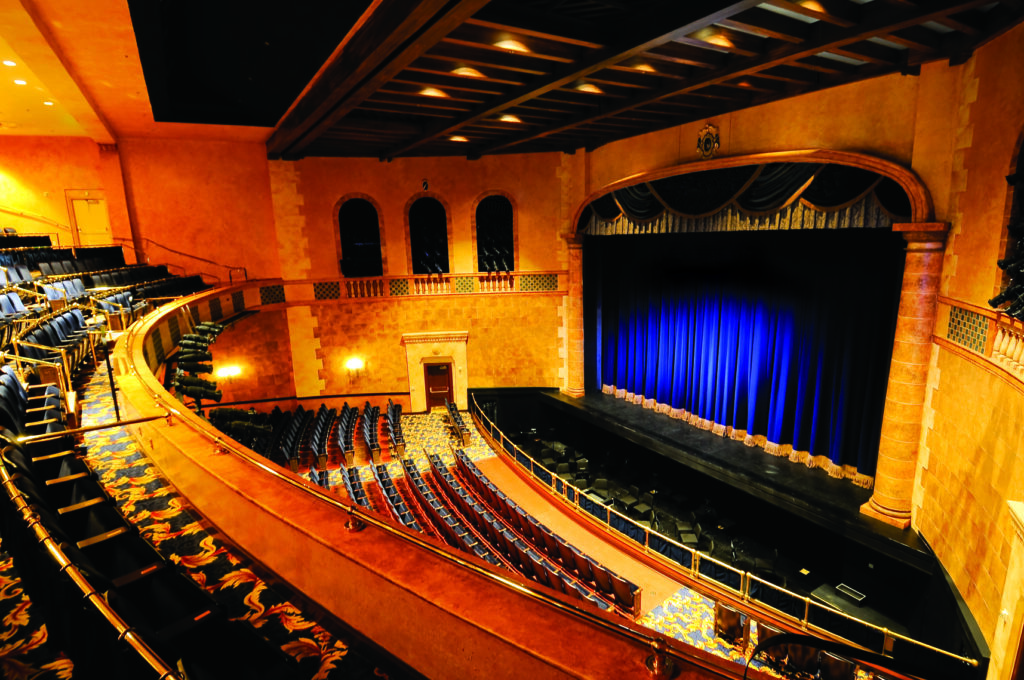
Feature
Raising the Curtain: Sarasota Opera’s New Season
Sarasota Opera Remains True to Composers’ Grand Visions: From Bizet’s Carmen to a Haydn rarity, this season is no exception
By Scott Ferguson • October 2023
When the curtain rises on Sarasota Opera’s 2023-2024 mainstage season in November, audiences will be treated to The Music of Giacomo Puccini. The concert will showcase vocal artists backed by the Sarasota Orchestra, performing arias and ensembles from all 12 operas the composer wrote. The event will usher in a season ranging from familiar favorites like Georges Bizet’s Carmen to Deceit Outwitted, an opera written by Joseph Haydn — one of the world’s best-known classical music composers, but one whose operas are rarely performed.
When the curtain rises on Sarasota Opera’s 2023-2024 mainstage season in November, audiences will be treated to The Music of Giacomo Puccini. The concert will showcase vocal artists backed by the Sarasota Orchestra, performing arias and ensembles from all 12 operas the composer wrote. The event will usher in a season ranging from familiar favorites like Georges Bizet’s Carmen to Deceit Outwitted, an opera written by Joseph Haydn — one of the world’s best-known classical music composers, but one whose operas are rarely performed.
Each season, explains General Director Richard Russell, “We try to do a piece that we’ve either never done, or it’s been a very long time since we’ve done it, or it doesn’t get done very frequently — something that’s fairly rare, to draw opera lovers who are looking for something different, something that they can’t see someplace else. Our regular subscribers like to see some things that are out of the ordinary, like the Haydn piece.”
By contrast, Sarasota Opera has produced Carmen five previous times. One of the best-known and most performed operas of all time, its popular melodies include Habanera and The Toreador Song — with instrumental versions heard in countless movies and TV shows.

“People know those tunes; they’ll start humming them as soon as they hear them,” says Russell. “Carmen is special to me because it was the first opera I ever saw. I think it’s a great first opera for people.”
Artistic Director and Principal Conductor Victor DeRenzi adds, “I don’t think there’s a popular opera that’s really not a great piece. These operas have been alive a long time and they’re beautifully composed. Sometimes people think, ‘Oh, it’s popular. How good could it be?’ But the most popular operas are really among the greatest operas. And they’re also dramatically great. With every great opera, you feel for the characters, you feel empathy.”
Selecting which operas to stage is just part of the balancing act that goes into planning a season. DeRenzi describes it as “a very long process, because there’s a lot we would like to do — that we feel this company should do, that we feel the opera world should do. It’s how it all fits together that’s important.”
Russell and DeRenzi, who are so in sync that they often finish each other’s sentences, talk about the math involved in putting together a season that will work financially as well as artistically. The factors in the equation include the number of singers that will be required, from chorus-heavy to a lighter opera like Deceit Outwitted, the Haydn piece that doesn’t need as many voices or as large an orchestra.
Then there are the sets: “Probably the largest single expense in a particular opera,” says Russell. “So we have a stock of sets, especially for the very popular operas that we use. We typically have to build a set or two during a season, so those are considerations. Also making sure that the set can work in the context of a four-opera season, because we have a limited amount of space backstage.”

The company has sometimes rented sets from other organizations, but finding sets with dimensions that work can be a challenge, since the stage is smaller than those at some other venues American opera buffs know. The Sarasota Opera House is smaller than many other U.S. opera houses; it seats 1,119 people. By comparison, the Metropolitan Opera House in New York is about 3½ times larger, with a total capacity of over 3,900.
“I think seeing almost any opera in a theater of our size is really a very special event,” says DeRenzi. “If you’ve seen opera in New York, San Francisco or Chicago, for example, you might look at our theater and say, ‘Oh, this is a small theater.’ But it’s actually not. The problem is, those theaters are big. But Verdi and Puccini didn’t anticipate their operas being performed in theaters of 4,000 people.”
As an example, DeRenzi cites Giuseppe Verdi’s Ernani. Staged by Sarasota Opera last season, the opera was first produced in 1844 in Venice, Italy, at the Teatro La Fenice. With a capacity of 1,126, La Fenice holds just seven more people than the Sarasota Opera House seats.
“The immediacy of singers singing right at you and you being so involved in the production is something that makes coming to operate in Sarasota so special,” notes DeRenzi. “We do Mozart and it’s even bigger than some of the theaters where Mozart heard his own operas performed.”
And it’s not just the relative intimacy of the Sarasota Opera House that makes it special. DeRenzi says, “We have a very specific aesthetic as a company: we produce operas the way the composer intended. That’s an important part of our mission. It means if the story says we’re outside of a bull ring or in the mountains, we try to make it look like that. Many companies don’t do that anymore, these just use a white wall or the equivalent.”

The Sarasota Opera is known throughout the opera world as the only company that has staged all 28 of Verdi’s operas. Known as the Verdi Cycle, the project began in 1989 and was completed in the 2015-2016 season. This season, the company will mount a new production of Verdi’s Luisa Miller, last staged in 1999 as part of the cycle.
Russell explains that the company took a break from Verdi for a few years after completing the cycle. “But now we have returned to staging a Verdi opera every year, because that’s our brand, an important part of the culture of the company and Maestro DeRenzi. So we made the decision a few years ago to revisit some of the Verdi works we have not done in a long time. We did Ernani last year, which we had not done since 1997. And we haven’t done Luisa Miller for about 25 years.”
Another important aspect of the company’s mission is the Sarasota Youth Opera, the only program in the U.S. committed to presenting an annual full-scale opera production for young voices, as well as accepting all young people ages 8 to 18 who wish to participate — as many as 100 students in some years. This season, the Youth Opera production is Benjamin Britten’s The Little Sweep.
DeRenzi notes that “there are a lot of choral groups for kids, but we show them that opera is not just singing. They learn about what it’s like to be backstage. They learn about sets and costumes. And we try to give them the idea that this is a great art form that’s not the same as sitting in your church and singing choir, or being in your middle school choir. This is different. It’s a dramatic art.”
The Sarasota Opera also has a robust outreach program, including sending singers to the Sarasota Bay Club retirement community and to schools, as well as partnering with the organization Embracing Our Differences to bring students to matinees in the Opera House.
In addition to helping people of all ages in the local community discover or rediscover the majesty of opera, Russell explains that “about 25 percent of our audience is made up of tourists — whether they’re here specifically to see all of our operas, or perhaps they came for a vacation and saw that there’s an opera company here that’s doing Madame Butterfly. Time and time again, when I stand in front of the Opera House before and after every performance, I see people walking by, noticing our signs and saying, ‘Oh, they’re doing Carmen. I wonder if we can go.’ And it happens on the spot.”
For Sarasota residents and visitors, for opera aficionados and for those who’ve never seen an opera onstage, there is much to discover in the 2023-2024 Sarasota Opera season.
For tickets, contact the Sarasota Opera Box Office, by phone at 941-328-1300, in person at 61 N. Pineapple Ave., Sarasota, or online at SarasotaOpera.org.
Bravo! Sarasota Opera’s 2023-2024 Season
Operas are sung in their original languages and translated into English in supertitles that appear above the stage. Get ready for a season of divas, drama and divine music!
The Music of Giacomo Puccini (Nov. 10 and 12, 2023) This concert of selections from all 12 Puccini operas will be conducted by Artistic Director and Principal Conductor Victor DeRenzi and will continue the company’s partnership with the Sarasota Orchestra. Soloists will include Sarasota Opera favorite artists sopranos Hanna Brammer and Erica Petrocelli, tenors Rafael Dávila and Christopher Oglesby. Baritone Jean Carlos Rodriguez will be making his company debut with this concert.
The Little Sweep, by Benjamin Britten,a Sarasota Youth Opera Production (Nov. 4 and 5, 2023) Composer Britten and librettist Eric Crozier were inspired by two poems by William Blake about a young chimney sweep. The poems exposed the evils of child labor in 18th century England. First performed by Sarasota Youth Opera in 2005, this production, moved to 19th century Boston, includes an original prologue by conductor Jesse Martins and director Martha Collins.
Carmen, by Georges Bizet (Feb. 17-March 22, 2024) Based on an already classic story by Prosper Mérimée, the story contains sex, violence and murder, and was quite controversial for its time. The opera, set in southern Spain, tells the story of Carmen, a gypsy woman who seduces a soldier, Don José. Carmen, which premiered in Paris in 1875,was staged by the Sarasota Opera in its 1987, 1992, and 1999 seasons. The current production was first seen in 2012 and 2018. The cast includes Chelsea Laggan in the title role and Victor Starsky as Don José.
Lucia Di Lammermoor, by Gaetano Donizetti (Feb. 24-March 23, 2024) Deceit leads to murder and madness in Donizetti’s 1835 masterpiece, based on Sir Walter Scott’s The Bride of Lammermoor. The opera premiered in Naples, Italy, in 1835. To save his family’s fortunes, Enrico Ashton has promised his sister Lucia’s hand to a Scottish nobleman, instead of Edgardo, the man she loves, and a member of a rival family. The cast features Ashley Milanese as Lucia, Christopher Oglesby as Edgardo, and Jean Carlos Rodriguez as Enrico.
Maestro DeRenzi: “Lucia is the essence of romantic opera. When you read novels of the 1800s, if someone’s going to an opera, it’s going to be Lucia. Flaubert’s Madame Bovary goes to see Lucia. In Tolstoy’s Anna Karenina, when the characters go to the opera, it’s Lucia. I think it’s about as iconic an opera as you can get, along with Carmen, of course.”
Luisa Miller, by Guiseppe Verdi (March 9-24, 2024) Luisa, the daughter of an old soldier, is in love with Carlo, who is really Rodolfo, the son of the ruthless Count Walter. The count’s opposition to the couple’s love leads to tragedy, in this 1849 opera filled with memorable arias and thrilling ensembles. Aviva Fortunata sings the role of Luisa, Rafael Dávila is Rodolfo and Ricardo José Rivera is Miller, Luisa’s father.
Richard Russell: “Luisa Miller is one of my favorite of the lesser-known Verdi operas; there’s some absolutely incredible music in it.”
Deceit Outwitted (L’infedetlà delusa), by Joseph Haydn (March 15-23, 2024) In this light comedy — a Sarasota Opera premiere — the peasant Filippo hopes his daughter Sandrina will marry the rich farmer Nencio instead of the poor peasant she loves. Through a series of comic complications and (including a parade of disguises), all is resolved, accompanied by Haydn’s inventive score and brilliant singing. Hanna Brammer plays Vespina, Yulan Piao is Sandrina, William Davenport portrays Nencio, and David Walton plays Filippo.
Russell: “I personally have loved Haydn for a long time. He wrote a lot of music: 104 symphonies, but only 17 operas. This one seemed like the right size, the right scale for the opera house. It worked well in the context of this season, because it is a smaller piece. We have three with rather larger choruses, and there is no chorus in this opera. And we knew we had the singers to be able to do it. So it seemed like an opportunity to present an opera from a significant composer. There’s some really wonderful music in it. It’s an opportunity for singers to try out something new, and for our audience to hear something different.”
DeRenzi (whispering): “Also, nobody dies!
Russell (laughing): “Yes, it’s important to balance the very heavy operas with something lighter. Carmen, Lucia and Luisa are all very dramatic. It’s nice to include a lighter opera like Deceit Outwitted.”



You must be logged in to post a comment Login